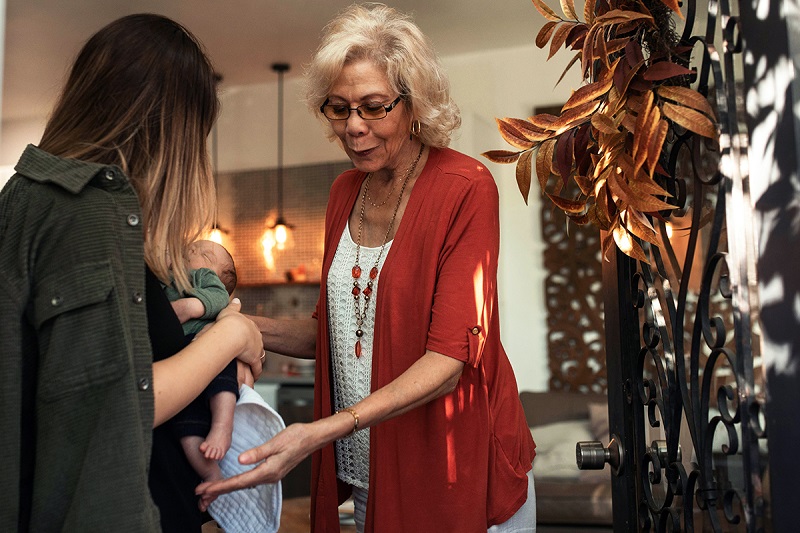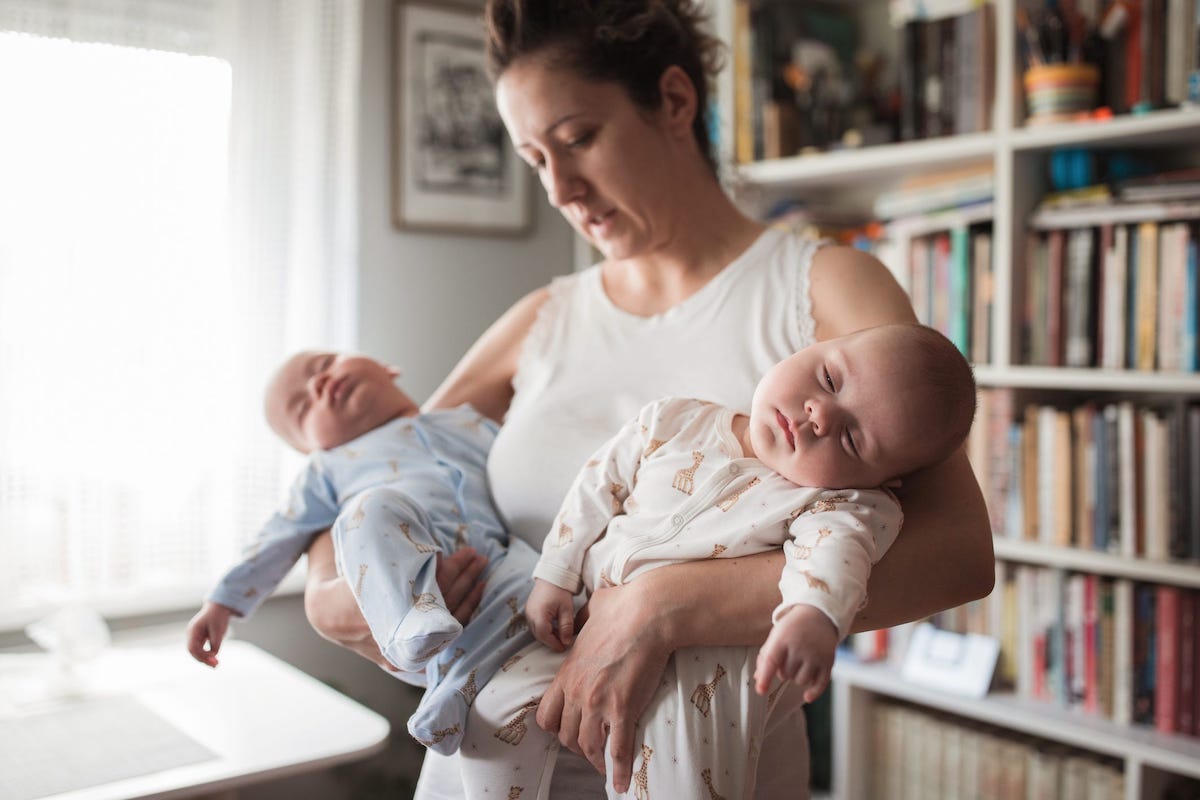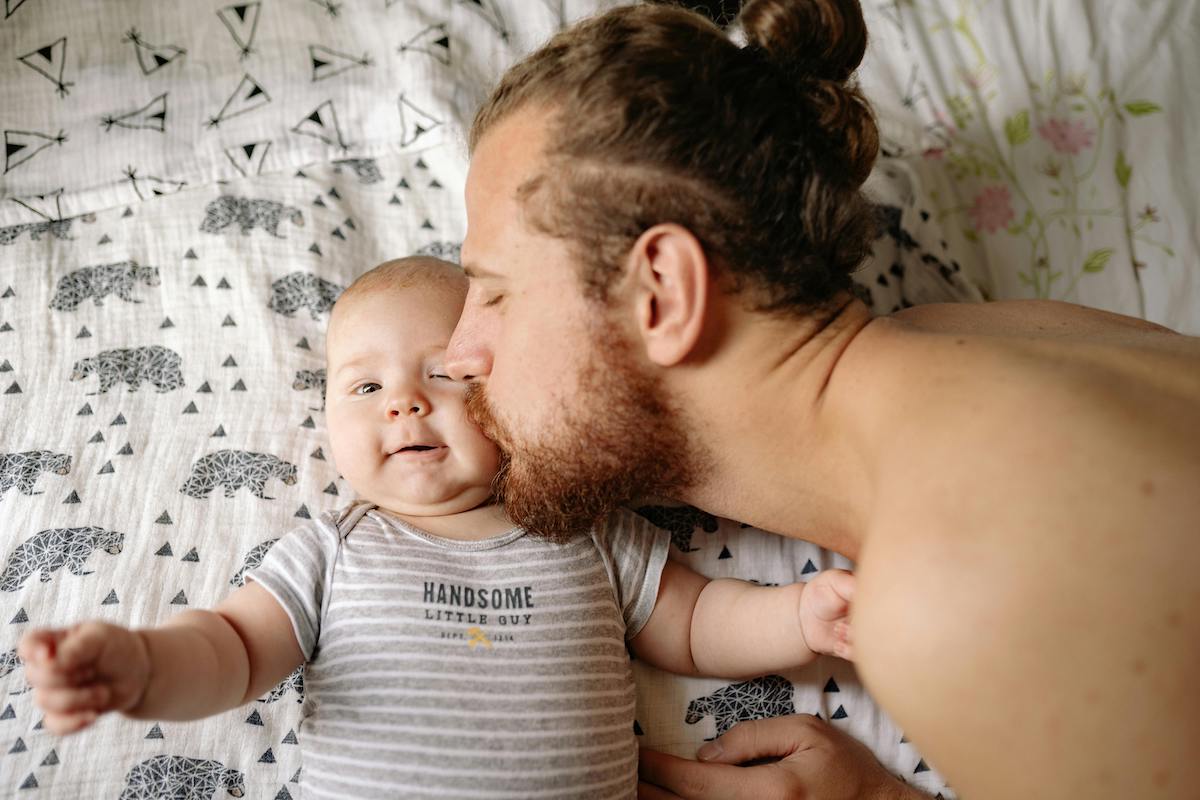My due date is December 4, and we already have out-of-town relatives requesting to fly in for Christmas who are excited about a new baby. This is our second baby, first male grandbaby on their side, but our first child was hospitalized 10 days following her birth. I’m already nervous thinking about the precious newborn phase in the house, never mind the offered “help.” How do you think about this (taking into consideration your own feelings/boundaries, risk of bringing in sickness, balancing this with the very real need of help, how “fair it is to both sides of the family,” etc.)?
—The Anxious Mom
I want to start by pulling out your list of considerations: your own feelings/boundaries, risk of bringing in sickness, balancing this with the very real need of help, how “fair it is to both sides of the family.” The first three of these are absolutely important, and I’ll talk about them below. I would urge you to try not to consider the last one. You do not owe people a visit with your baby. Period. It doesn’t matter how much they want to come, or that it’s the first male grandchild, or that they sent a handmade sweater and they have to see the baby in it for just five minutes. Fairness is not a consideration. Maybe you want your mom to come but not your in-laws. That is okay. “Fair is not always equal” is a great line, which you can use now with adults, and later with your two children.

Instead of thinking about what you owe people, lean into this decision as one in which you and your partner trade off illness exposure with the value of help, using your own feelings and boundaries as a guide. That is: consider the risk of illness, and how you can mitigate it. Consider the value of help. And then think about the boundaries that work for you (this really comes back to this “Grandparents and Day Care” post.
Some data can be useful. In terms of illness exposure, as you know, the first couple of months of life are the time of greatest concern, for two reasons. First, very young infants are more susceptible to disease, especially to bacterial infections. Second, the medical protocol for dealing with an infant with a fever is much more involved than it would be with an older baby. If your infant gets a fever at two or three weeks, there is a good chance they will need to be hospitalized and possibly have a spinal tap. This is all for good reason, but it means that a mild viral infection is a much bigger deal in terms of disruption, fear, and discomfort. Once an infant gets to two or three months, the approach to illness is more similar to an older child — Tylenol, staying hydrated, etc.
With an older child in the house, there is already a risk of illness exposure. The best you can do on this is to keep hands washed and try not to let your older child kiss the baby’s face when they’re sick (I know that seems obvious, but actually older siblings are surprisingly interested in face kissing/licking). Bringing in visitors increases the illness risk. You may be able to mitigate this with masking, testing, and not allowing visitors who are sick.
On the other hand, visitors bring help. They may bring help with the baby. But more importantly, they may bring help with your older child. A day out with the grandparents, some extra attention, is often welcome. This help varies tremendously with who the person is. It is helpful to be honest with ourselves about which relatives bring actual help and which do not.
I cannot evaluate these tradeoffs (at least not for your family — for my own I could!). But what I feel very strongly here is that you should try to evaluate them without guilt. Your responsibility is to yourself and your partner, your child, and the pending baby. That’s it, and that is plenty.
Community Guidelines




















Log in